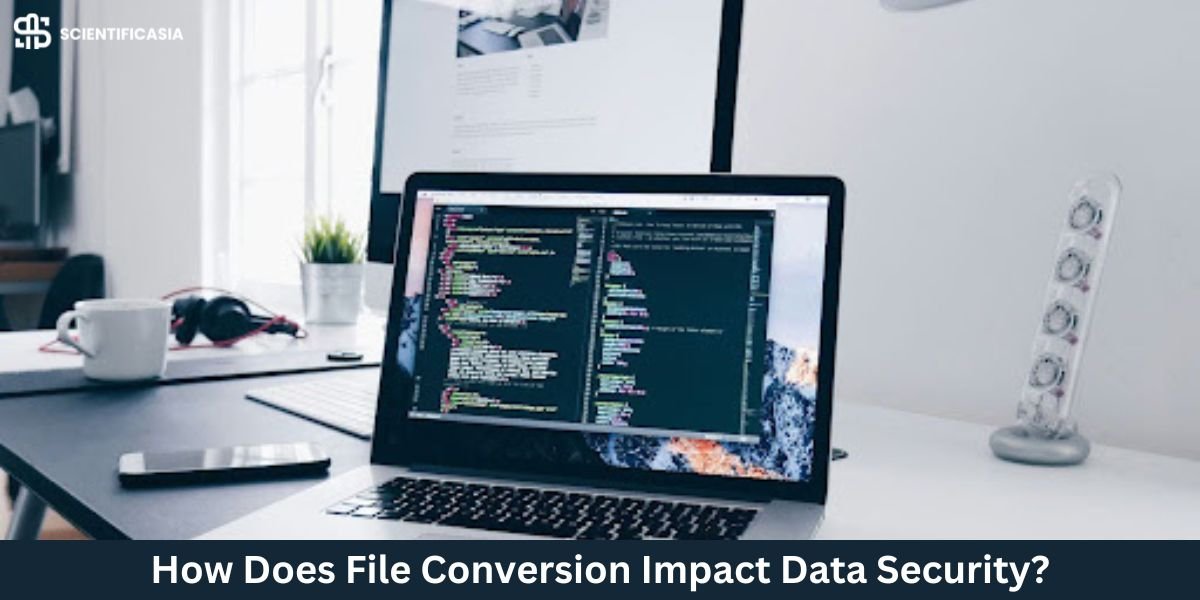Converting files from one format to another is a routine task that many of us perform. Often, we might not consider the security implications tied to this seemingly simple process.
Whether you’re transforming a document for compatibility or sharing it with others, numerous risks lurk behind each conversion step. From data integrity issues to encryption vulnerabilities, these concerns can significantly impact your confidentiality and compliance efforts.
5 Ways File Conversion Impacts Data Security
Understanding these risks helps you make informed decisions and protect your valuable information during every step of the conversion process. Here are five crucial areas to consider:
1. Data Integrity Issues
Data integrity is important when it comes to file conversion. Converting files can often result in the loss or alteration of important information. You might find that images don’t render correctly or embedded links break, which can be problematic. This becomes particularly critical when dealing with sensitive documents, where even slight errors could lead to miscommunication.
For example, it’s safer to convert a PowerPoint file to a PDF using Canvas tool instead of a random one. Reliable tools ensure that your data maintains its original form and accuracy through the conversion process, safeguarding its integrity.
2. Unauthorized Access
Unauthorized access is a significant risk when converting files using third-party tools.
Many online conversion services require you to upload your documents, making them susceptible to interception during transit. If the service provider doesn’t use robust security measures like encryption, your sensitive information could be compromised. Some platforms may even store your files on their servers without you knowing, exposing them to further risks.
Always choose trusted and secure tools to minimize the chance of unauthorized access and potential data breaches, ensuring that your confidential files remain private the entire time.
3. Malware and Viruses
Malware and viruses are common threats when using file conversion software, especially those downloaded from less reputable sources. You might think you’re simply getting a useful tool, but it could come bundled with malicious code designed to infect your system.
This can lead to data theft, corruption, or even complete loss of files. It’s crucial to use tools that have been vetted for security to avoid these pitfalls. Regularly updating your antivirus software and scanning new downloads can help protect your system from these hidden dangers.
4. Compliance Risks
Compliance risks should never be overlooked when converting files, especially in regulated industries like healthcare or finance. Many sectors are governed by strict data protection laws, such as HIPAA in the United States or GDPR in Europe.
Using file conversion tools that do not meet these regulatory standards can lead to severe consequences, including legal penalties and loss of client trust. It’s essential to ensure that any conversion software complies with relevant regulations to protect sensitive information and maintain compliance. This reduces the risk of unauthorized access, as well.
5. Encryption Vulnerabilities
Encryption vulnerabilities are a critical concern during file conversion processes. When converting files, if proper encryption protocols are not in place, it leaves your data exposed to potential interception and unauthorized access. This becomes even more worrisome when dealing with sensitive information such as financial records or personal identifiers.
Weak or outdated encryption methods can be easily exploited by cybercriminals, compromising the confidentiality and security of your data. It’s vital to use trusted conversion tools that employ current, robust encryption standards to protect your information throughout the entire process.
Protect Your Data One Step at a Time
Understanding the security risks associated with file conversion is essential for safeguarding your valuable information. By being mindful of these potential pitfalls, you can make smarter choices about the tools and methods you use. Prioritize reputable and secure solutions to protect your data’s integrity, confidentiality, and compliance. Don’t let a routine task become a source of vulnerability. Stay informed and proactive in your approach to file conversion.













